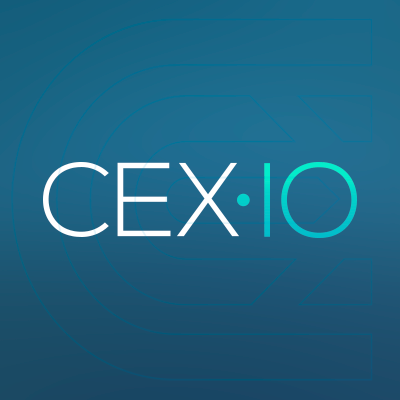How Blockchain Technology Will Secure Online Payments
Look around at the business climate today and you will find a multitude of fintech startups, including bitcoin exchange ones. This tells us that the financial services industry is ripe for disruption, and the most prominent candidate is blockchain. Blockchain is to banks as the bank account was to cash: much safer. It was considered revolutionary when the banks could take your cash and display it to you as a number on a computer screen that you were guaranteed could be converted to cash, but blockchain will take that one step further.
Perhaps the biggest benefit to blockchain technology is the security it provides. Everyone remembers what it was first like to shop on the Internet. Nobody would input their credit card information because of the fear of having their information compromised which could cost them serious cash.
The system has advanced, but this is still a possibility. With Paypal there are numerous opportunities for fraud. One example is when a fraudster commits “double spend”. Two payments are made from an account at the same time, and while the merchant thinks they've received money, the fraudster has just transferred it to a separate account and left nothing for the merchant in the base account. By the time it becomes clear what has happened, it is too late.
On the other hand, blockchain is like having a wallet where everyone knows what's in it. The transactions and balances are all public knowledge to everyone on the network. This makes it impossible to manipulate the system by saying you have more money that you do.
Based on algorithms too complex for the general public, you are essentially guaranteed by mathematics that accounts, or “wallets”, haven't been tampered with. Banks can be hacked or robbed because there is a central storage for either the data or the assets. Blockchain is decentralized, which means a would-be thief would need to tamper with every computer on the entire network at once in order to successfully “steal” from the system. This requires more computing power than is available in the world right now, which should put users' worries to rest.
Right now blockchain is in that early phase where only select niches are talking about it, because very few people properly understand it. As it finds a way to make it to the consumer sector without compromising its security, you will find yourself depending on banks and the government a lot less, and blockchain a lot more.
Before I move forward and explain all the other ways blockchain can be applied to make other industries secure, it might help to explain exactly what blockchain means on a granular level. Blockchain is essentially a chronological record of all the accounts on the network and the transactions that occur. Each “block” contains records of transactions and these transactions are put in a specific order, or “chain”. If you know every account's original balance and have records for every transaction that occurred after that, there is no opportunity for fraud to take place.
Blockchain works to keep records for a specific network, which means that Bitcoin is a network that runs blockchain. Similar to the added trust that comes from dealing with Apple, if you know that a network runs blockchain, you develop a certain level of trust for its security. This added trust doesn't come from trust in the people running the system, it comes from the system itself. The whole added value of blockchain comes from its decentralization.
If you're looking for a concrete prediction about blockchain, here it is: any industry that would normally have to spend time using some sort of 3rd party verification will likely benefit from or be disrupted by the use of blockchain in the future. Examples include trading, voting, intellectual property, and more.
There are three benefits to cutting out the third party middleman: time, trust and money. First, it costs a non-material amount of time to have someone else verify a record or transaction. Then, the more people you have involved in the process, the higher the risk of the system being compromised. Finally, these third parties need to get paid, and that effectively serves as a tax on customers. When you examine all these costs at once it becomes clear that blockchain has a huge addressable market.
Watching what is happening to the trading industry now is a good indicator for the future of online payments. Over 40 banks around the world are investing significant time and assets to understanding and using blockchain technology in their systems. It is estimated that the ability to remove the middleman from the trading process will save customers billions of dollars that would normally be spent on clearinghouses and other verification methods.
The three major advantages to blockchain are as follows: transactions are immutable, the network is a trustless environment, and there is a distributed fault tolerance.
Immutability means that the transactions are permanent and irreversible. It is impossible to mess with the records because of the breadth of the network. As a trustless network, no one person, or node, has the ability to make significant changes within the system. Somewhat counterintuitively, by not trusting anyone, you are better able to have faith in the system. Finally, there are so many nodes on the system that are all running the same ledger (record of transactions) that there is no single chokepoint, or point of vulnerability.
After hammering down on every reason why blockchain is becoming the best method for securing online payments, you can probably start to see how this is going to change the world. It's almost as if an engineer looked at the banking system, decided he'd had enough with the inefficiencies and designed this system to cut out all the small fees that gouge buyers and sellers on a daily basis. Nearly every industry would benefit from a clearer method of keeping and exchanging records, and there are guaranteed to be applications that haven't been predicted yet.






Objectively commenting, I should say that:
– “double spending” is actually possible in the blockchain.
– A would-be thief wouldn’t need to “tamper with every computer on the entire network at once in order to successfully “steal” from the system”, it would require 50%+ of power of calculation to do it, which is clearly not the same thing. On private blockchains, it is more likely to be possible (with a nice DDOS attack for instance)
– The blockchain, in substance, is in my view not suitable for trading. May be OTC Trading, on specific niches, okay, but not in high-frequency trading MTFs or markets. The velocity required and the enormous number of trades happening in seconds is not compatible with the design of the blockchain (for now, at least).
– Immutability is an advantage but also a big problem. People make errors, and financial system must allow them to correct errors.
– I don’t think there’s one single system in the world that can be said as “unhackable”. There’s always someone smarter than you.
– Finally, financial systems need governance. Why endorsing MIFID2 and EMIR regulations if there’s no governance afterward?
I don’t say blockchain is not good, I just don’t believe it is suitable for all these matters.
I.
Also putting all transactions into blockchain mean that everyone will know where you spend your money… it may seem as there is no danger in that but when you will lose your job just because you happened to buy something in that sex shop nearby then maybe you will see problem in this.
Well Runaurufu, it’s not that easy to figure out how people are spending their money. All you see are addresses and transaction amounts on the blockchain. How many companies are going to do all the work of trying to figure out where those transactions came from etc etc?
I have read about blockchain earlier and it is quite secure too. But different countries have banned it due to its unknown origin and source. We really don’t know that whether are information if safe on it or not. What do you say about it?